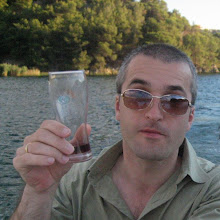(As a species) we believe we understand much more than we actually do;
Take, for example, a scientist involved in research in human biology that makes a discovery that could possibly lead to a way to treat a disease or condition. If, when considering how such a treatment might be applied, the underlying assumption is that we believe we understand, say, ninety percent of how the human body works, we would reasonably propose a relatively risky and invasive procedure, as what we do not know of the body is relatively little, so the possible consequences of unknown factors is low. But what if we only understand, say, fifty percent of how the body works? Suddenly, the risks are hugely amplified.
As such, we often stride too confidently deep into unknown territory, whether it be science, politics or economics, with the often woeful consequences that go with that intransigent conceit.
We lead ourselves to believe we are in familiar territory, but it is a mirage; a simulacratic notion of something similar to a place that we believe know, when we do not.
On a dark winters night, as we approach an isolated house in the distance, the dim glow from the window of a warm, fire-lit room is an enticing image.
We remain far from home.
